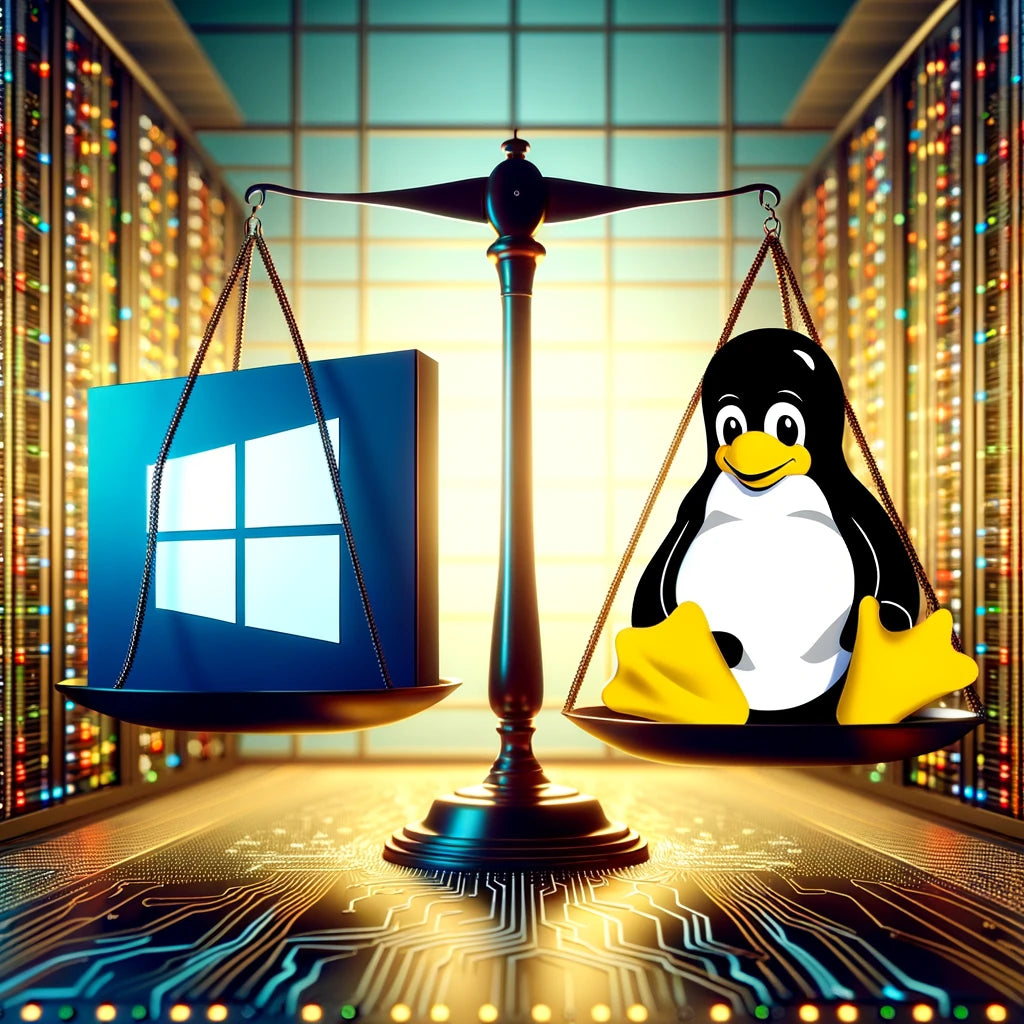Windows Server Operating System Vs Linux Based Operating System
Windows Server Operating System Vs Linux Based Operating System
Are you setting up a server for your business or homelab and wondering which operating system (OS) to use? The choice between a Windows Server OS and Linux can be a tough decision to make, but fear not! In this article we will break down the key differences in simple terms to help you make a decision.
Cost
Windows server typically requires a purchasing license with the extra purchasing option of user CALs (Client Access Licenses) that allow extra users to access the server's operating system over a client device, which can be costly depending on the version of the Windows Server OS. On the other hand, Linux distributions are usually free and open source for anyone to download and use, making them a budget friendly option.
Ease of Use
Windows Server is known for its user-friendly user interface, similar to what you would find on a regular windows operating system for a desktop or laptop. This can be advantageus if you are more familiar with Windows systems or prefer a graphical interface for managing your server.
Linux on the other hand, often requires some familiarity with the CLI (Command Line Interface), which might seem dauting for clients who do not have knowledge in subjects like computer science and operating systems, or any interest in the subject. However, many Linux distros now offer user-friendly graphical interfaces, making them more accessible to a wider audience for no cost.
Security
Both Windows and Linux have robust security features, but they approach security in slightly different ways.
Windows Server tends to be more targeted by malware and viruses due to its widespread use in the corporate world; however, Microsoft regularly releases security updates on their windows defender software to patch and combat the vulnerabilities.
Linux is often considered more secure due to its open-source nature, allowing for fast detection and patching of security flaws by the community. In addition, Linux based servers typically have fewer services running by default and less bloatware installed by default on the OS, reducing the attack surface.
Customization and Flexibility
Linux offers a wide range of customization and flexibility, allowing you to tailor the OS to your specific needs. With thousands of open-source Linux distributions, applications and tools, you can build a server environment that fits your requirements perfectly.
While windows server is customizable to some extent, it's more tightly integrated with other microsoft software and services, which can limit flexibility for certain tasks.
Compatibility
If your organization relies heavily on Microsoft products like Active Directory, Exchange Server, or Share Point, Windows Server might be the better choice due to its seamless integration with these services.
Linux, on the other hand, may require additional configuration or third-party software to achieve similar functionality with Microsoft Services.
Conclusion
The choice between Windows Server and Linux ultimately depends on your specific needs, preferences and technical expertise. If you prioritize ease of use and compatibility with Microsoft products and services, then Windows Server might be the way to go. However, if you value cost-effectiveness, security, and customization options, Linux could be the perfect fit for your server environment. Consider your requirements carefully, and you'll be on your way into choosing the right Operating System for your server.
Windows Server OS for Dell ServersWindows Server OS for HPE servers

